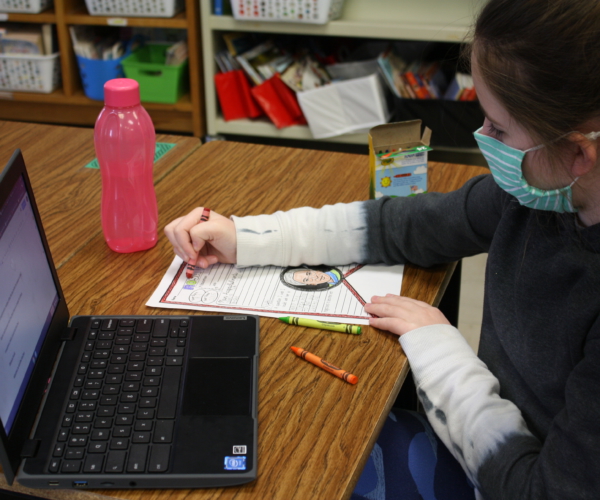Using the phrase “learning loss” is not encouraged when talking about summer school and COVID’s impact on students in Illinois’ Bloomington Public Schools.
Educators there are of course aware of COVID’s academic and social-emotional impacts, but they also don’t want deficit-driven language to derail their students’ efforts to bounce back, says Diane Wolf, the assistant superintendent for curriculum and instruction.
“One thing we have focused on is what students have gained—for instance, our kids have gained incredible technology skills,” Wolf says. “I do not want to see this generation of students feeling like they can’t succeed because they missed school during pandemic.”
Still, the 5,500-student district is eying a revamped K-5 summer program to help children get back into more traditional school routines such as waking up on time and catching the bus, Wolf says.
More from DA: 3 steps for beefing up summer to counter learning loss
To attract more students to attend, the district, which is 58% low-income, us using ESSER stimulus funding to partner with several community organizations to blend enriching activities into the traditional summer school math and ELA programming, Wolf says.
“I was concerned that if we just did standalone summer school program, I would be pulling potential students from our community agencies that also do summer programming, ” she says.
Some of these partners, such as the Center for Mathematics, Science, and Technology at Illinois State University and the city’s Children’s Discovery Museum, will provide hands-on STEM activities.
The local Boy’s and Girl’s Clubs will teach classes on art, finance and personal hygiene.
District leaders have also agreed to hire pre-service teachers from Illinois State University to help teach summer school. They will work with districts teachers in morning classroom sessions and with the partnering community organizations in the afternoon activities.
The program will run for the next three summers while the stimulus funding is available. Educators will likely replicate some of the summer’s innovations during the regular school year, Wolf says.
More from DA: How one district expands the concept of summer learning
“If we or any other school system goes back to the way things were in March, 2020, we have failed,” Wolf says.
Technology is one way the district will move forward. It has enabled teachers to collaborate more robustly than ever before and enable more parents to engage with the district, Wolf says.
“I am ecstatic to see what will happen to our school system,” she says, “I am not fearful of it all.”









